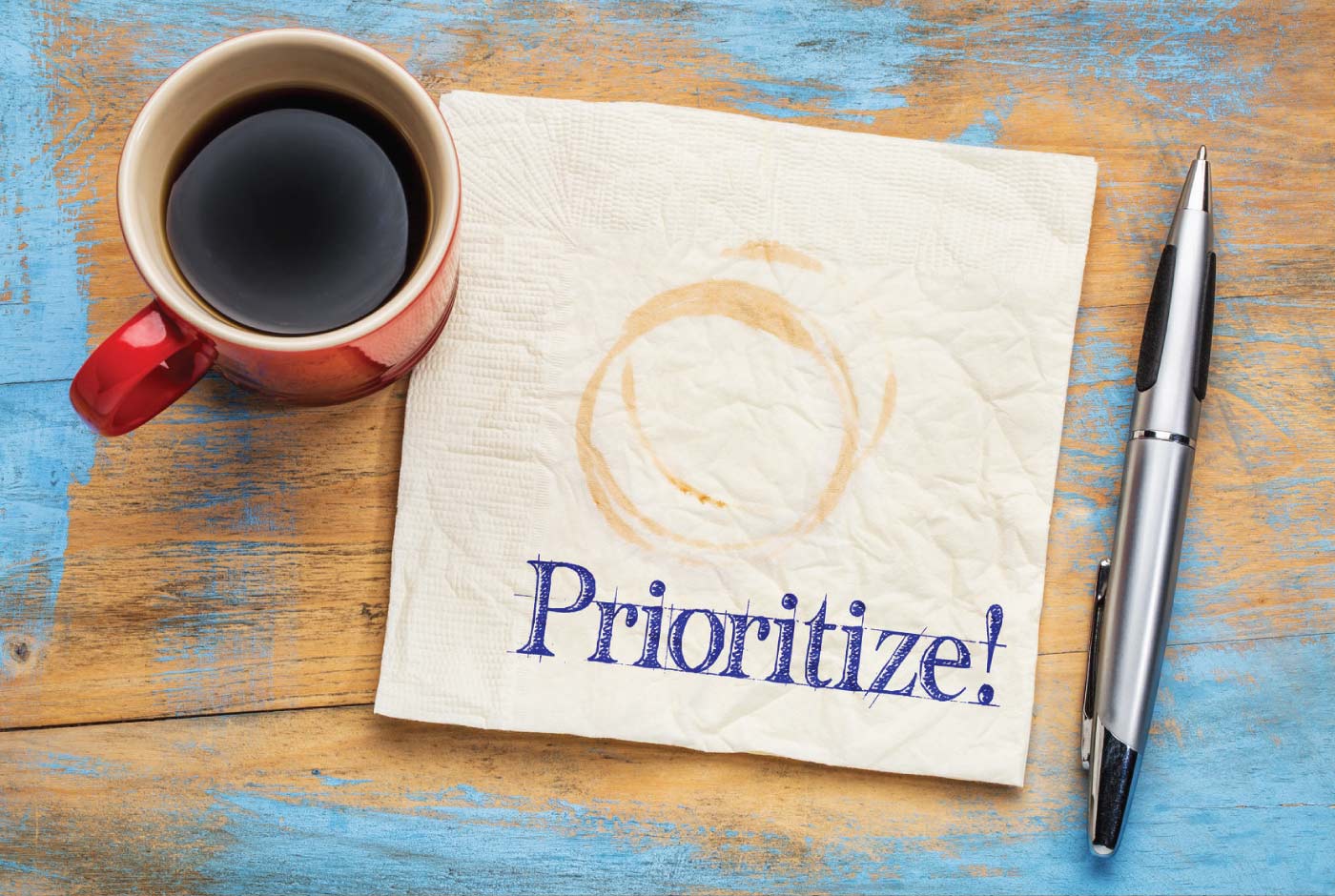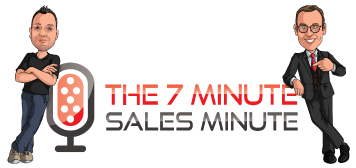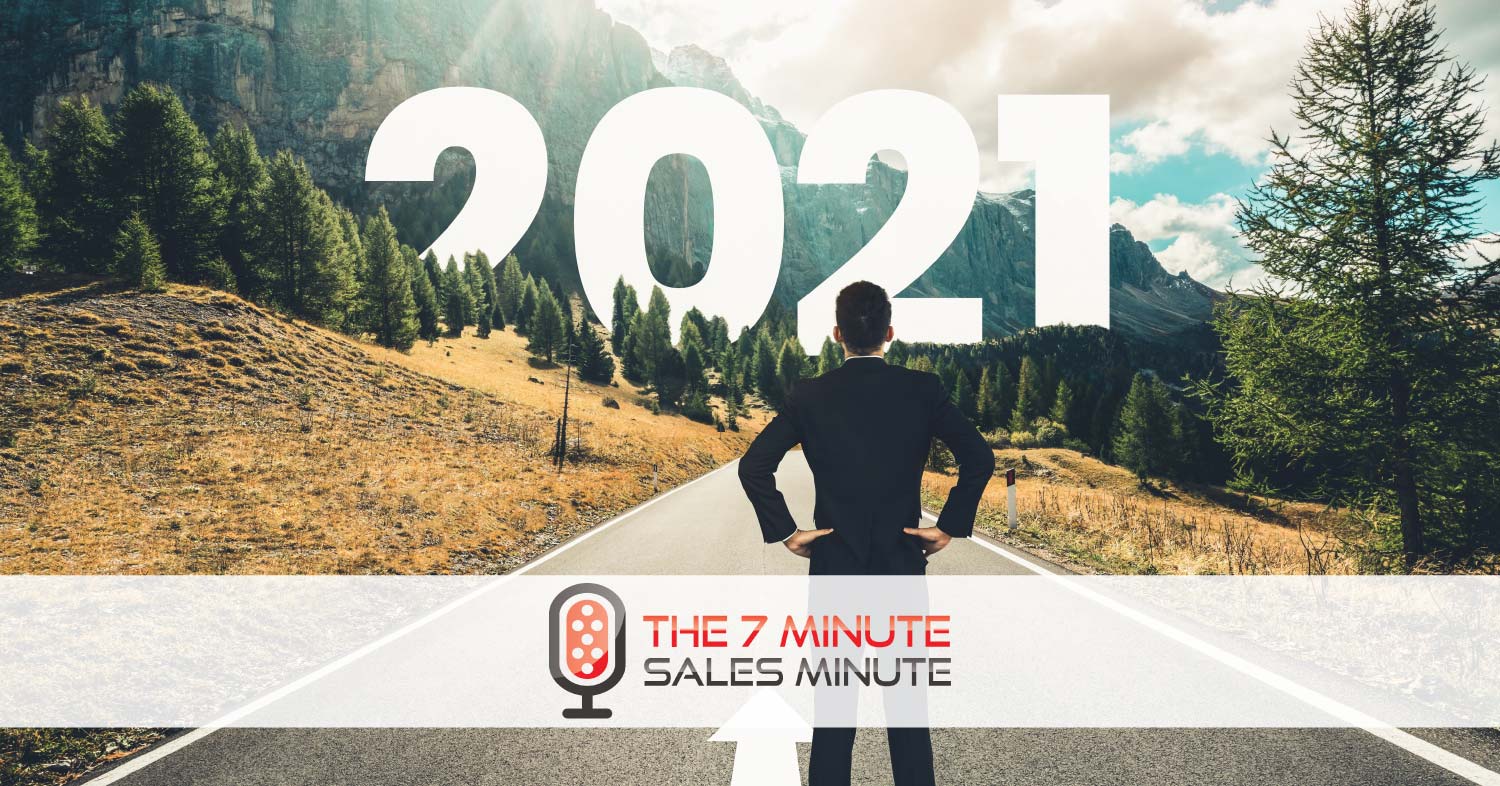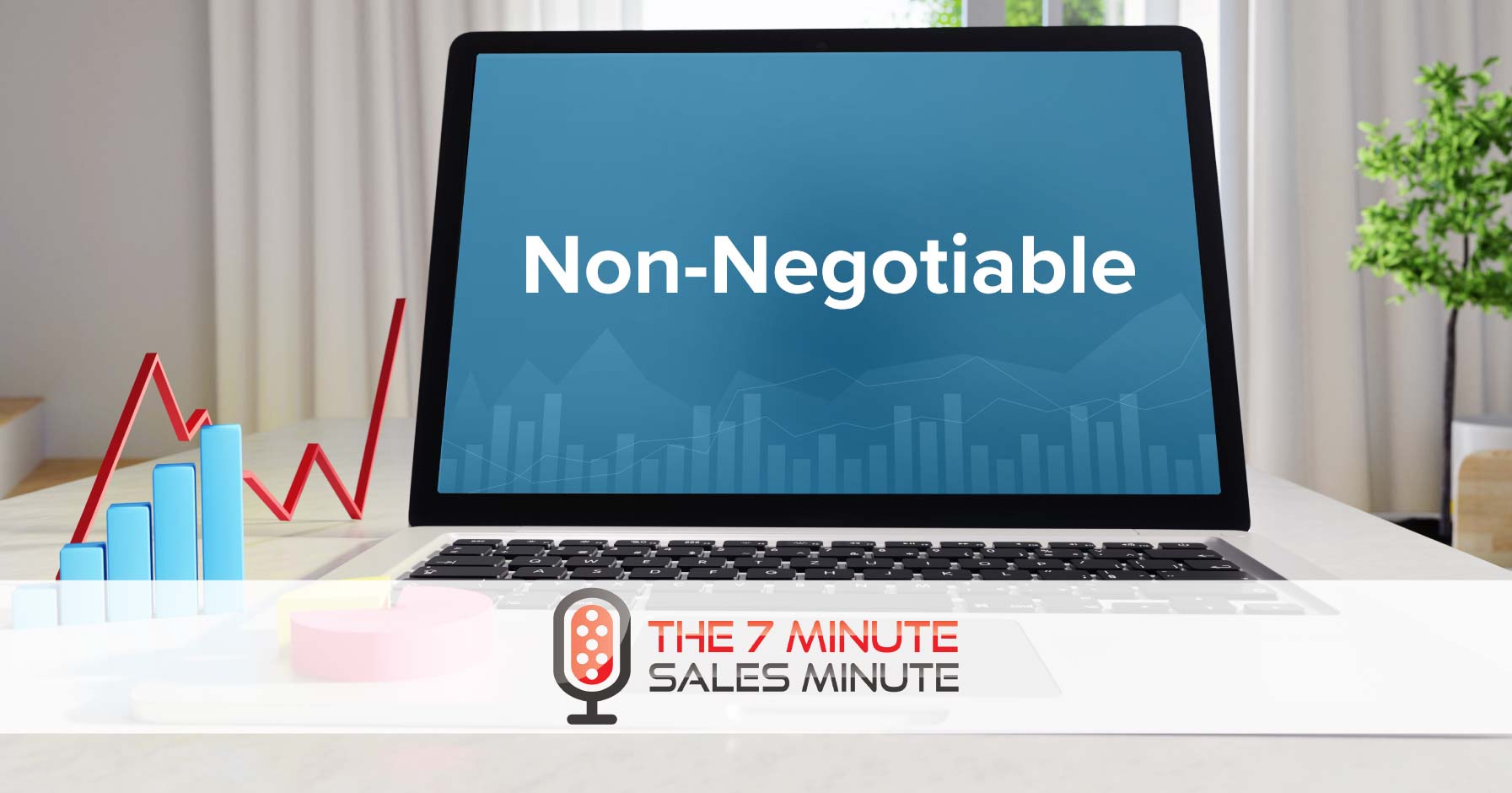
In this episode, the guys share their tips on getting more done.
You don’t have to sacrifice to do more, you just need better planning and the right mindset.
Read the full transcript
Scott: I’m Scott Fishman.
Jon: I’m Jon Dwoskin.
Scott: And this is, The Seven Minute Sales Minute.
Jon: Welcome, everybody.
Scott: Good morning, Jon!
Jon: Scott, good morning. What’s going on? How you doing?
Scott: Doing great, man. Rocking and rolling.
Jon: Good. Me too. Me too.
Scott: So, this week I wanted to talk about something because it’s a question that I get asked a lot and –
Jon: Yeah.
Scott: It’s funny because I don’t really see it, but people ask me this all the time. How do you find the time to do all of this stuff that you do?
Jon: Right. That’s a good que- yeah people ask me that a lot as well.
Scott: Right. And, you, I mean, I can say legitimately I don’t know how you do everything you do. It’s rid- it’s crazy. But I look back at what I do in an average week, and you know I have a probably 50 to 60 hour a week job, plus the podcast, plus writing books, plus trying to find time for family.
Jon: Right.
Scott: And there’s a lot of stuff going on.
Jon: There’s a lot of stuff going on. And I think the key, what I’m hearing you talk about, is how do we prioritize everything that we want to do in a day, in a week, in a quarter, in a month, in a year, and then actually set course to do it.
Scott: Right, how do we fit 10 pounds of stuff in a five pound bag?
Jon: Right. Exactly. And I think most people have that problem and run into that obstacle. So why don’t we give our listeners a couple of tips to really think about prioritizing their day so they can actually fit it all in while still having balance in their life.
Scott: Right. I agree.
Jon: Yeah, okay.
Scott: Let’s start. What do you have for me?
Jon: Okay. Well, one thing I think that people need to do is – this is one thing I do; I shouldn’t say this is what I think people should do – but this is what I do and it works for me. I really do my best to have a big picture plan of what I want to do – whether that’s working out, spending time with family, all of the initiatives that I want to do in my business. Things of that nature. And I write it all out and then I reverse engineer it and break it up into small little chunks so I know what I have to do on a daily basis.
So, for example, I’m gonna use working out as an example because I think that’s one thing that people always say, “God I wish I had time to work out. I’m so busy I can’t.” But, in reality, you know, how much time – I mean I’m 45, I have two kids, I’m with my kids a lot, my wife. I mean, you know, 30 years ago when you and I were working out, you know, for two hours a day after work it’s not necessarily realistic anymore.
Scott: Right.
Jon: So, you know, I tell myself: Okay, I only really have to work out 30 to 45 minutes. If I can get an hour in that’s great and I only gotta do it maybe four or five times a week. So, I do my best to slide it into my weeks and a lot of times it’s either waking up early or staying late and having the discipline to do it.
Scott: Right. And I think about those times when we used to work out and we definitely over-trained.
Jon: Yeah.
Scott: And I think a lot of it is coming up with the minimum effective dose.
Jon: Yes.
Scott: Like, how much do you really need to do to actually make this work? So the same thing with working out. If you can get the results with just a 30 to 45 minute workout, maybe it works a little bit better for you. I mean, you and I in those two-hour marathon workouts we used to have, how much time was spent just bs’ing by the water fountain.
Jon: Yeah a lot. But, also I like what you said: The minimal effect. Because you really don’t need to do that much of anything on a consistent basis. We’ve talked a lot about the compound effect, you know, if you do a little bit of everything on a daily basis you get where you ultimately want to be versus trying to overdo everything, feeling paralyzed. and then you ultimately end up doing nothing. So you have no balance in your life.
Scott: Right. It’s like you said a little drop in a bucket here, a drop in a bucket there. It all adds up. You know, when people ask me how do you write a book and – you think about this – if I write just literally 250 words a day –
Jon: Right.
Scott: How many, if we go 250, I got my calculator right here so this is great. That’s 91 thousand words in a year.
Jon: Right.
Scott: Which is … how many pages? 228 pages! So you can write a book in one year.
Jon: Yeah, I just wrote my book. It was – it’s 80 thousand words and it took 11 months. So it was a flow; but, I mean pretty close to what you just said, give or take.
Scott: Right.
Jon: You know, a lot of times people ask us how do you and I find time to do this podcast? Well, we do it because we know it takes about 20-ish minutes. You know, maybe 20 to 30 minutes max because we talk before and then we talk after. But we just fit it into our schedule whenever it makes sense and whenever we can do it.
Scott: Right.
Jon: Because we’re committed to doing it and we have the discipline.
Scott: And something that I think about now is you imagine you’re a 45 year old man. Something my grandfather told me, years ago, because he used to get up so early, and then he told me, “The older you get the less sleep you need.” And I think one of the main things that helps me now is just getting up early every day.
Jon: Yeah.
Scott: Cause I can get things done. Knock out a few things off my to do list before the sun even comes up and if you can do that then obviously you can get more done because you’re getting things done before your day even begins.
Jon: Well, think about it. I’ve talked about this a little bit, but my sister-in-law just got back from a Tony Robbins five-day retreat and one of the things he talks about is … I can’t remember what he talks – what he calls it, I think it’s maybe the … some ritual it basically talks about rituals in the morning. So, she’s now getting up where she used to get up at like 6:30 a quarter to seven, seven o’clock. She gets up at 5:30. She journals for a little bit. She meditates for a little bit, and then she goes on a 45-minute walk but all because she’s waking up before anybody in her family gets up.
So, I think a lot of people, you know, that’s the sacrifice that a lot of people aren’t willing to make. Which is getting up an hour, half an hour, an hour, hour and a half early. You take that time, I mean, you wake up an hour early, start waking up an hour early Monday through Friday, all of a sudden you just added 20 hours to your month.
Scott: Right. That’s amazing.
Jon: It’s amazing, so if you say you don’t – if people say they don’t have the time, you have the time it’s just you have the discipline to open up that space for time.
Scott: So if you’re adding 20 hours a month, basically you’re getting an extra half a week of the average work week added to every single month. That’s amazing.
Jon: Right, right. Unfortunately, the older we get the more we have to do. Things like that. So we can have balance in our life.
Scott: Right.
Jon: The more … the older we get, the more responsibilities we have, the more we work, the more our business grows, we have less time to do other things so we gotta find the time and typically I agree with you. For me, it’s mornings as well.
Scott: Right. Something that I’ve done and it helps me is blocking my time out and also focusing. Because, think about what we have coming at us at any time of day. If we’re at our desk we have our cellphones, we have our phones, we’ve got email, we’ve got … in my office we’ve got the internal messenger. There’s so many things coming at you nonstop, you can’t focus. So you’re juggling things and you’re not giving 100 percent to any one thing. Blocking out time and focusing on it really does help.
Jon: Yeah, right, and prioritizing what you do in those times. You know, one of the things we’ve talked about in the past – and I talk about with my clients – is always what are your top three priorities? What are your top three activities? Whatever your top three any – you know, fill in the blank. That’s what you should be spending time on, you know, first and foremost.
Scott: Right. And challenge yourself to actually get things done in a shorter time. There’s Parkinson’s law and I’m gonna read this it says, “Work expands so as to fill the time available for its completion.” So, it’s like when you have … We did a class – legal research – did you take that in college?
Jon: Oh yeah, easy A.
Scott: Yeah it was the easy A, so …
Jon: I can’t remember if we took it all together, us and everybody but yeah –
Scott: A bunch of us took it together. And, folks, for everyone out there listening, this course was a class. It was a business credit. It was legal research and basically you showed up the first day. This teacher got paid to do nothing. She showed up the first day and said, “Here’s your assignment. It’s due the last day of the semester and that’s it. Just turn it in and I’m never gonna see you.” Like, there was no class.
Jon: Right.
Scott: She, literally, like that was the biggest scam, but what did we do? We didn’t do it on day one.
Jon: Right.
Scott: When did we do it? Like the –
Jon: The last –
Scott: The last week –
Jon: Right.
Scott: We could’ve done it on the first day and been done and laughed about it. I think maybe she was teaching us all a lesson – who knows – but if you think about it, when we went to the law library, everybody in our class was at the law library that week doing it.
Jon: Right.
Scott: So, literally like, that job we could’ve gotten it done in one day, the very first day of class and completed it. Instead, we dragged it out for 10 weeks.
Jon: Yeah, yeah. That was a great class. That really brought my GPA up.
Scott: When you think about Parkinson’s law and how it applies to what we do on a day-to-day. There’s so many things that we say. You know, I’ve gotta get this, this, and this done, but we’re still struggling at five o’clock at the end of our business day to actually squeeze things in.
Jon: Right.
Scott: Because we gave ourselves the whole day. If you give yourself till 10 a.m. to get something done you’ll find a way to get it done.
Jon: Yeah, I mean that’s … I was just listening about that Parkinson’s law on a podcast. I can’t remember if it was Tim Ferriss or somebody was talking about it and it’s true. I mean, having the discipline to not just fill your space with the same old same old and you know is key. That is, I think that is the key to growing anything in your business.
Scott: Right. And one other thing that I think we need to talk about is how do we get stuff done. Delegation, too?
Jon: Yeah.
Scott: You know, it’s important to delegate things. If someone can do something at 80 percent of the level that you can do it. You have to think maybe it’s gonna be worth your time to have them handle it.
Jon: I think people are a lot of times poor delegators because they don’t want to give up control. But, you know, really, I’m gonna encourage everybody to make a list of everything that they do in a day. Do that for three days and start circling some of the things that you really don’t need to be doing. Where you’re having a hard time giving up the control and push yourself to give up that control because it’s, they’re time wasters.
Scott: Right and there’s, I can think about a lot of stuff that I do. I am the concomitant control freak. You know that like … I’ve had to, every time we do something I’m like “oh no, let me just do it”. You’re like, no, we can have our team handle this.
Jon: Right.
Scott: They can do it. And the whole thing is, I don’t want to relinquish control because I have a vision. And a lot of times – my vision – I can’t make it happen.
Jon: Yeah.
Scott: Perfect example is the first book cover I put out. I had feedback that it looked like a yoohoo bottle or a juice box because I did it myself and I wanted to handle it all. And it just didn’t come out right. It didn’t look professional cause I’m not a professional designer.
Jon: Right.
Scott: When you let someone else handle things for you that specializes in it, you actually are gonna get a better product at the end, no matter what.
Jon: Right, so you know, for those who are listening, make a list of everything that you want to do. And what Scott and I are trying to tell everybody is you can do it all but prioritize it. I know there’s certain things that I want to do that aren’t, it’s not the time to do it so I put it on hold for a couple of months so it doesn’t distract me from what I want to focus on right now.
I’m a big believer that, you know, you can focus on two or three things at the same time. I like to, you know, think that. But prioritize your time and your days so you’re not overloaded. I think, Scott, you and I both sometimes put too much on our plate and you gotta know when to take certain things off your plate. Prioritize, focus so you can have the time to work out. You can have the time to hang out with your family and not worry about work. You can do it all but you gotta prioritize and start putting things on hold that distract you from being able to have it all.
Scott: Right. So we’re giving you a lot of good ideas here that we use. And we each have our own personal system that we go by, but the important thing is that you create your own personal system and you make it your own. You take your own priorities, you block out your time, schedule it accordingly and you can adjust on the fly. You don’t have to “set it and forget it”. We’re working in clay here. We’re not working in stone.
Jon: Right, right.
Scott: So create your own personal system and actually go with it. It’s been a theme of everything we’ve talked about this season. The important things is actually just do it.
Jon: Yeah. I’ll just say one thing on what you just said. Do it for at least a month, you know. Do it for at least a week. Pick some type of measurable time – one week, two weeks, three weeks, four weeks – and just commit to doing it because it takes a while to get the muscle memory. But, come up with a plan, wake up early, stay up late. Whatever it is. Set a plan, like you just said, and commit to it. I’ll challenge everybody to do it for at least 10 days.
Scott: I like that – the challenge.
Jon: Yeah.
Scott: Hit us up in 10 days and let us know what you did.
Jon: Amen. All right, I think these are some good tips.
Scott: Folks, please take what we say to heart. Use it. Commit to it. Make it happen. Thank you for taking the time to listen today.
Jon: Have a great day, everybody.




